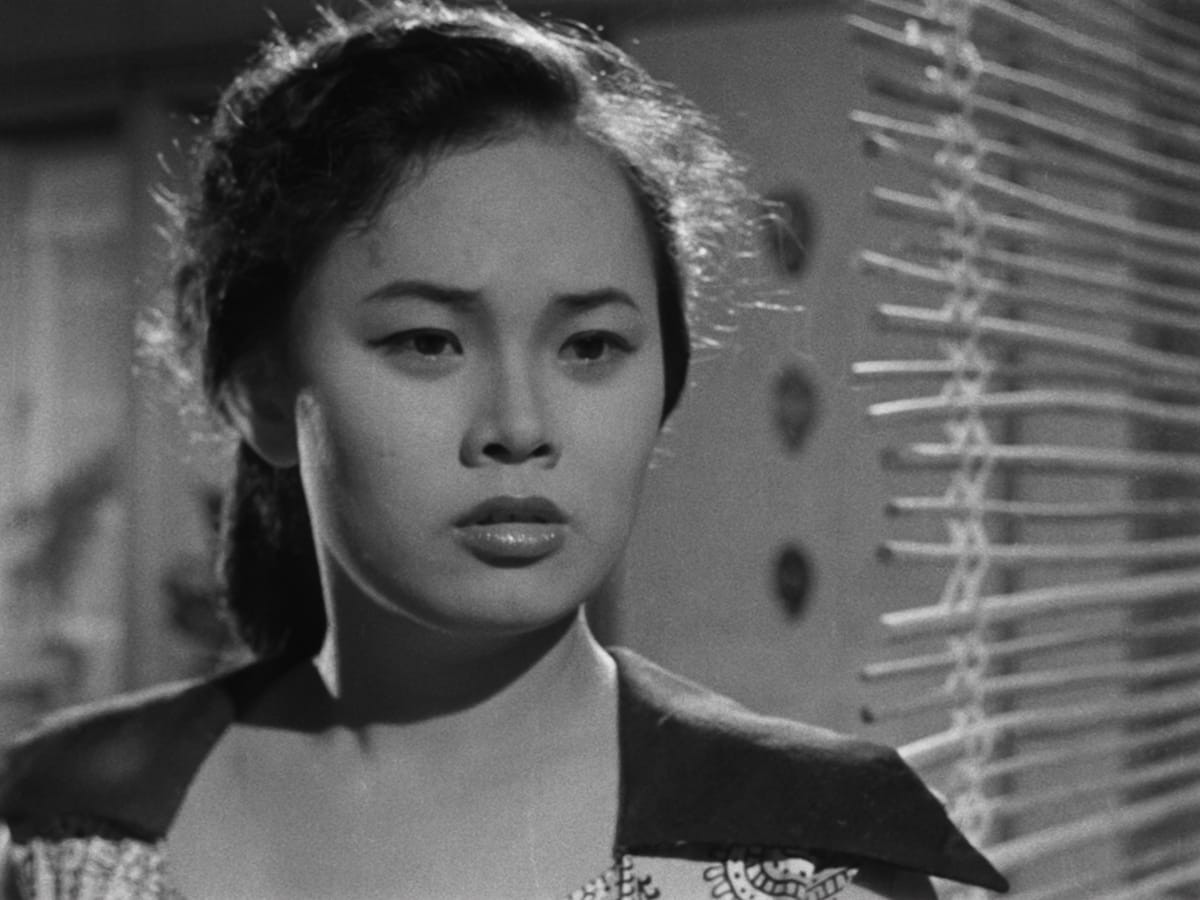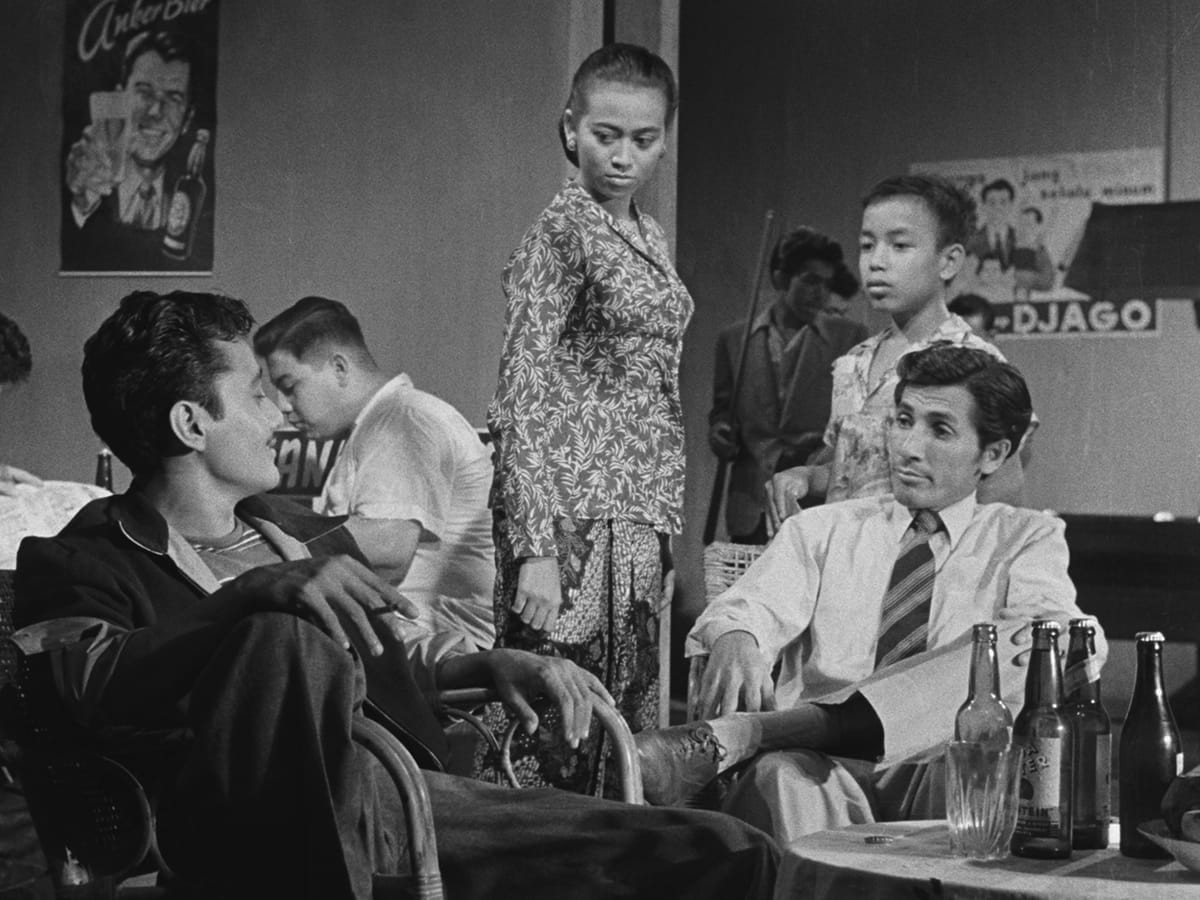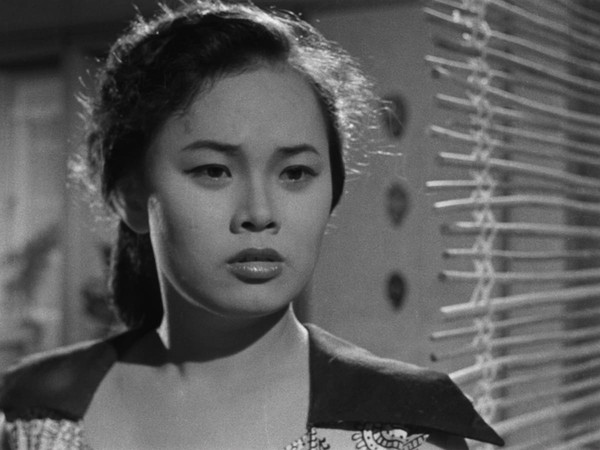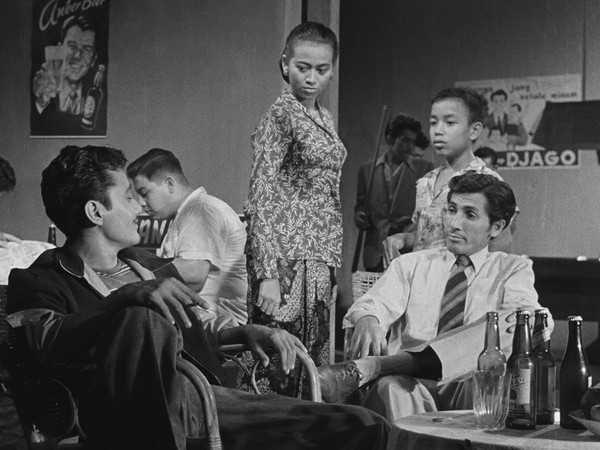After the Curfew

A little-known, passionate tale of a revolutionary hero returning to civilian life after the liberation from Dutch colonial rule that took top honours at Indonesia’s Citra Film Awards, 1955.
Lewat Djam Malam (After the Curfew) is a passionate work looking directly at a crucial moment of conflict in Indonesian history: the aftermath of the four-year Republican revolution which brought an end to Dutch rule. This is a visually and dramatically potent film about anger and disillusionment, about the dream of a new society cheapened and misshapen by government repression on the one hand and bourgeois complacency on the other.
The film’s director, Usmar Ismail, is generally considered to be the father of Indonesian cinema, and his entire body of work was directly engaged with ongoing evolution of Indonesian society. He began as a playwright and founder of Maya, a drama collective that began during the years of Japanese occupation. And it was during this period when Ismail developed an interest in filmmaking. He began making films for Andjar Asmara in the late 40s and then started Perfini (Perusahaan Film Nasional Indonesian) in 1950, which he considered his real beginning as a filmmaker. Lewat Djam Malam, a co-production between Perfini and Djamaluddin Malik’s company Persari, was perhaps Ismail’s greatest critical and commercial success.
Festivals & awards
Honored at the Citra Film Awards in Indonesia in 1955
Restored in 2012 by the National Museum of Singapore and the World Cinema Foundation in association with Konfiden Foundation, Kineforum of the Jakarta Arts Council and family of Usmar Ismail Estate. Restoration work was carried out at Cineteca di Bologna/L’Immagine Ritrovata laboratory. Restoration funding provided by Doha Film Institute.





Credits
Would you like to show this movie?
Please fill out our form.
Feel free to contact us
Press voices
«Scripted by the poet Asrul Sani and directed by Usmar Ismail this little known classic is widely regarded in the archipelago as one of the most important in the history of Indonesian cinema. Fueled by political anger and disillusionment, this passionate, visually potent work looks directly at a crucial moment of conflict in Indonesian history: the aftermath of the four-year revolution which brought an end to Dutch rule. Usmar Ismail enjoyed his greatest success with this heartbreaking tale of a revolutionary hero’s return to civilian life, and his confrontation of a new society cheapened by government repression and bourgeois complacency.» The Wellington Film Society
«Le réalisateur Usmar Ismail est généralement considéré comme le père du cinéma indonésien, et l'ensemble de son œuvre est directement lié à l'évolution de la société indonésienne. Il a commencé comme dramaturge et fondateur de Maya, un collectif théâtral créé pendant l'occupation japonaise. C'est à cette époque qu'Ismail s'est intéressé au cinéma. Il a commencé à réaliser des films pour Andjar Asmara à la fin des années 1940, puis a fondé Perfini (Perusahaan Film Nasional Indonesian) en 1950, qu'il considérait comme ses véritables débuts en tant que cinéaste. Coproduit par Perfini et la société Persari de Djamaluddin Malik, After the Curfew est sans doute son plus grand succès critique et public.» Cinema Ritrovato Bologna 2012



